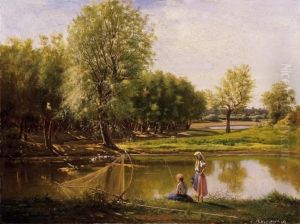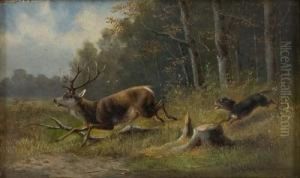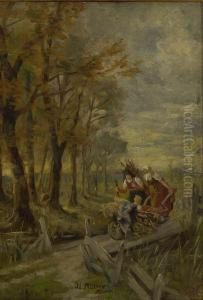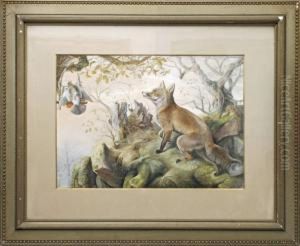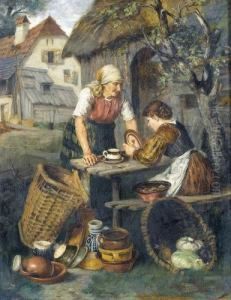Adolf Muller Paintings
Adolf Müller, also known as Adolf Müller Sr., was a composer of Viennese operettas and the father of Adolf Müller Jr., who was also a composer and conductor. Born on October 7, 1829, in Tolna, Hungary (then part of the Austrian Empire), Müller demonstrated musical talent from an early age. His family recognized his abilities and encouraged his musical education. He studied at the Conservatory of Vienna, where he honed his skills in composition.
Müller's career as a composer began in earnest in the 1850s. He found initial success composing dance music, which was popular in the salons and dance halls of Vienna. As his reputation grew, he began to compose for the theater, contributing music to various theatrical productions, including operettas and ballets. His work was characterized by melodic inventiveness and a keen sense for the theatrical, which made it well-suited to the light and often humorous genre of operetta.
One of Müller's most notable contributions to the world of music was his role in the creation of the 'Golden Age' of Viennese operetta. His works were performed at many of Vienna's most prestigious venues, including the Theater an der Wien and the Carltheater. Although he never achieved the same level of fame as some of his contemporaries, such as Johann Strauss II or Franz von Suppé, his music was nevertheless appreciated for its craftsmanship and charm.
Adolf Müller Sr. continued to compose and conduct throughout his life, leaving behind a substantial body of work that includes operettas, dance music, and songs. His son, Adolf Müller Jr., followed in his footsteps and became a successful composer and conductor in his own right. Müller Sr.'s influence on the Viennese music scene of the 19th century was significant, and his works contributed to the development of the operetta as a distinct musical form.
Müller passed away on February 20, 1886, in Vienna, Austria. Despite being somewhat overshadowed by the giants of Viennese operetta, his contributions to the genre have been recognized by music historians who appreciate the depth and variety of the Viennese musical tradition. His works are occasionally revived and performed, allowing a new generation of listeners to experience the charm of his music.
